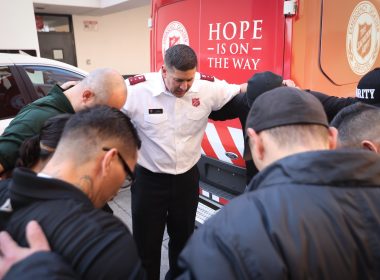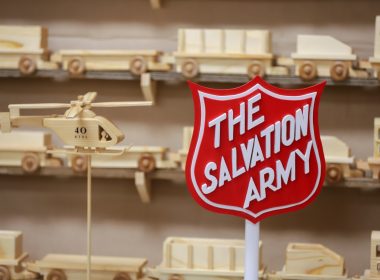Bridging the gap
Assessment, treatment and patient care for substance related disorders
Recently, over 75 people attended the Guam Corps’ first annual island-wide Drug Awareness conference. Entitled “Bridging the Gap,” the conference targeted health care professionals and explored prevention, treatment and recovery options for those with substance abuse issues. TakeCare Asia insurance company sponsored the two-day event, which was attended by nurses, dentists, pharmacists, government officials and members of the recovery community.
“The idea for the conference was to connect the medical community with that of the recovery community,” said Major Brian Saunders, Guam corps officer and Micronesian Islands coordinator, who oversaw the seminar. “We wanted to show the medical professionals the various recovery opportunities that the non-profit sector can offer, while at the same time, bringing in experts to demonstrate medical prevention and treatment options available.”
Gus Sablan Jr., senior vice president for TakeCare Asia, declared the conference a success, stating, “understanding the science, finding treatment and recovery options is a priority for all who work with addiction behaviors; the conference was a great first step in partnering these two groups of people.”
The staff at the Guam Corps Lighthouse Recovery Center, The Salvation Army’s residential substance-abuse treatment facility, led by Director Marie McElligott and Clinical Director Greg Borja, organized the conference, booking speakers and developing the theme of “bridging the gap.” Workshops on such technical topics as “Understanding Drug Abuse and Addiction: What Science Says,” and “Interventional Pain Medicine to Decrease Narcotic Dependence” were intermingled with sessions on cultural factors and recovery and referral options. In addition, U.S. Department of Drug Enforcement officials from Hawaii spoke on drug trafficking trends in the region. Guam is becoming a hub of drug traffic in the Pacific, with “ice” becoming more and more popular throughout Micronesia, and on Guam in particular.
Health care professionals earned continuing education credits (CEUs) for attending the conference. Conference director Saunders’ advanced degree, along with the credentials of the various speakers, enabled The Salvation Army to offer up to 10.5 CEUs to qualifying delegates. “CEU’s are critical in the medical profession,” said Borja; “being able to grant credits added a professionalism at the conference and also enabled us to attract a larger audience.”
Plans are already underway for next year’s conference. “This was just the beginning,” said Saunders at the closing session; “the partnership between the medical and recovery communities is an important tool in dealing with the drug epidemic. “Each of us is committed to helping those addicted to drugs and alcohol, and, by working together, we can best serve our community and those in need.”











